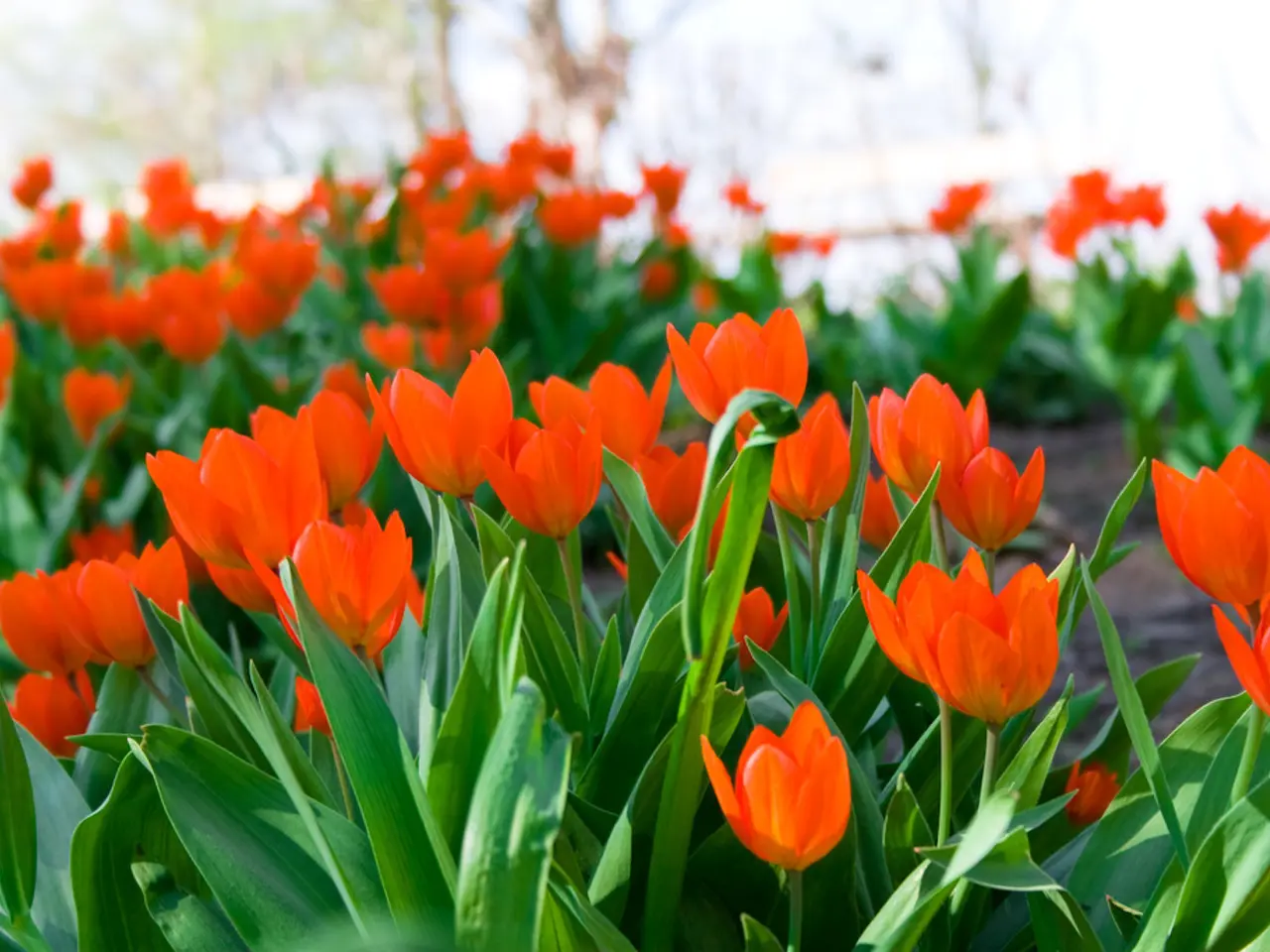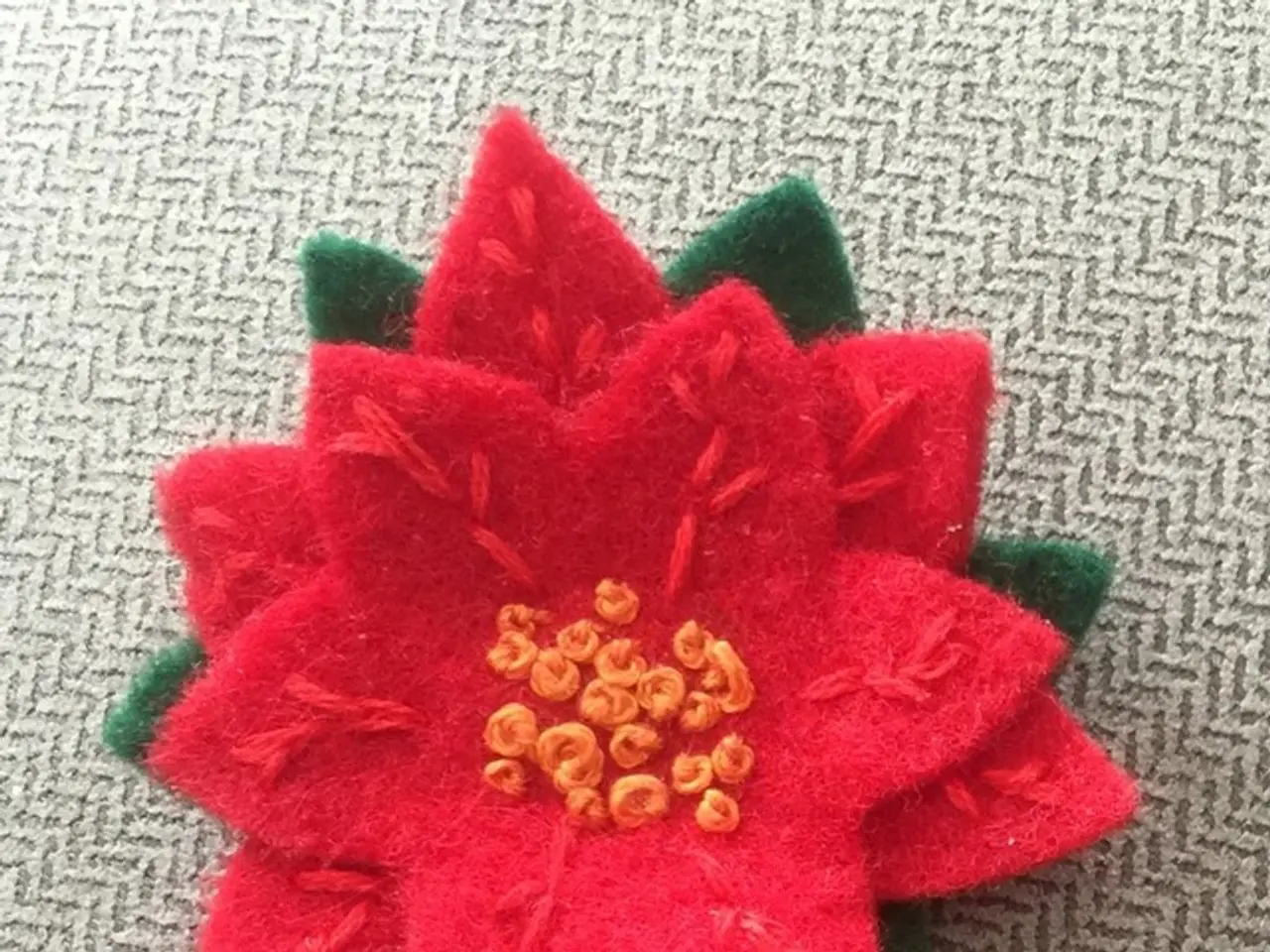Exploring the Tulsi Herb: Discovering Its Medicinal Benefits and Cultivation Techniques
In the heart of Indian culture, a plant stands tall as a symbol of purity, protection, and holistic wellness - Tulsi, also known as Holy Basil (Ocimum sanctum). Revered as the earthly manifestation of Goddess Lakshmi or Vrinda, this herb is deeply woven into the fabric of Indian society, rooted deeply in Ayurveda and Hindu traditions.
### Spiritual Significance
Tulsi is held in high esteem, considered the "Incomparable One" and called “The Queen of Herbs” in Indian mythology. It is often worshipped as a goddess herself, growing in Hindu homes and temples. Daily prayers and aartis are offered to purify the home and generate positive energy, bringing blessings, peace, and protection to households.
Wearing a garland or mala made from Tulsi beads is believed to purify the aura, protect from negative energies, increase sattvic (pure) vibrations, calm the mind, and support emotional balance. It is also said to clear bad karma and attract good fortune, connecting the wearer to higher spiritual principles like truth and compassion.
### Medicinal Benefits
Known as the “elixir of life,” Tulsi is rich in vitamins A and C, calcium, zinc, and iron. It has strong antibacterial, antifungal, antiviral, anti-inflammatory, and antioxidant properties, making it a key herb in promoting a healthy mind and body.
Tulsi is widely used to boost immunity and fight infections, including respiratory ailments and even neurological conditions like seizures, as investigated in scientific studies. It helps reduce stress, enhance mental clarity, and balance emotions, aligning with its spiritual benefits.
### Skincare Benefits
Tulsi’s antimicrobial properties help combat acne and other skin infections, making it a valuable ingredient in Ayurvedic beauty practices. Regular use of Tulsi extracts or oils is said to promote glowing skin by purifying and detoxifying the skin, reducing blemishes and inflammation.
Caring for Tulsi is simple. It loves sunlight and well-draining soil. To ensure its longevity, avoid waterlogging to prevent root rot. Tulsi does best in temperatures ranging from 75°F to 95°F and should be protected from frost during the winter months.
In summary, Tulsi is a natural remedy for a wide range of health issues, a protector of the home, and a source of positive energy. Its antibacterial and antifungal properties make it a good ingredient for skincare, while its anti-inflammatory properties can help reduce pain and swelling. Loaded with vitamin C, Tulsi helps strengthen the immune system, offering tangible health and skincare advantages through its potent medicinal properties. Tulsi is indeed a divine plant with holistic benefits, symbolizing purity and protection, and cherished for centuries in India.
- In Indian mythology, Tulsi is esteemed as the "Incomparable One" and "The Queen of Herbs," often worshipped as a goddess due to its spiritual significance.
- Tulsi beads are utilized to create garlands or malas, as it is believed they can purify the aura, protect from negative energies, and attract good fortune.
- With strong antibacterial, antifungal, antiviral, anti-inflammatory, and antioxidant properties, Tulsi is a key herb in Ayurveda, helping to promote overall health and wellness.
- Holy Basil, or Tulsi, is popularly used in home-and-garden practices, thriving in outdoor environments rich with sunlight and well-draining soil.
- Skincare products often incorporate Tulsi extracts or oils due to its antimicrobial properties, which can help combat acne and other skin infections, promoting clearer and healthier skin.
- Tulsi does not only offer spiritual and skincare benefits, but it also contains essential nutrients like vitamins A and C, calcium, zinc, and iron, supporting overall health and fitness-and-exercise routines.
- Embracing a Tulsi plant in one's home is a way to achieve mental-health equilibrium, as its calming and clarity-enhancing properties can help maintain emotional balance and overall lifestyle harmony.




